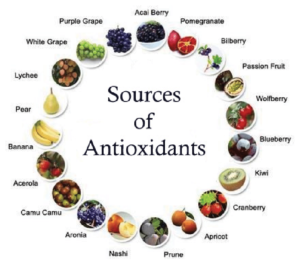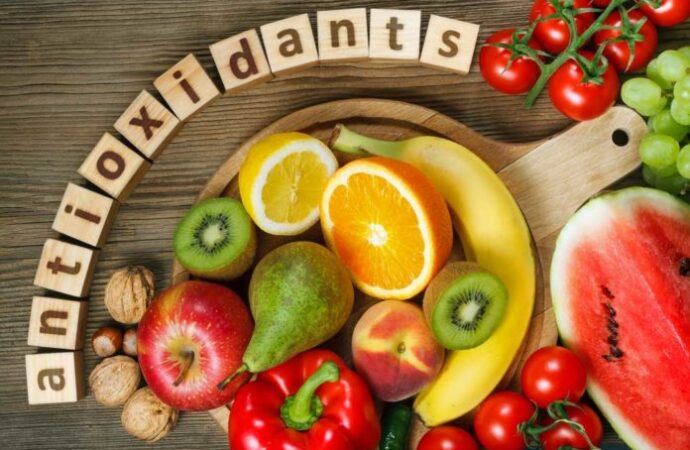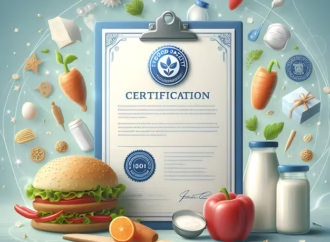Antioxidants are vital compounds that protect our bodies from oxidative damage and play a crucial role in preserving food safety. In the food industry, they help prevent spoilage, maintain nutritional value, and extend shelf life. However, while antioxidants offer numerous benefits, excessive use—especially of synthetic antioxidants—can pose health risks and complications. Both consumers and manufacturers must strike a balance between utilizing antioxidants for food safety and avoiding potential health issues caused by overconsumption. Understanding the benefits and risks associated with antioxidants is essential for making informed decisions that promote both health and food safety.
What Are Antioxidants?
Antioxidants neutralize free radicals—unstable molecules that form during the oxidation of food, such as when fats or oils spoil. Free radicals can damage cells, proteins, and even DNA, contributing to diseases, ageing, and food spoilage. By stabilizing these free radicals, antioxidants protect our health and help preserve the quality of food.
Sources of Antioxidants

Antioxidants come in various forms, each offering unique health benefits and originating from different natural sources:
- Vitamins:
- Vitamin C: Found in citrus fruits, strawberries, bell peppers, and broccoli.
- Vitamin E: Present in nuts, seeds, spinach, and broccoli.
- Beta-carotene (Vitamin A precursor): Found in orange and yellow vegetables like carrots, sweet potatoes, and pumpkins.
- Minerals:
- Selenium: Present in Brazil nuts, seafood, and whole grains.
- Zinc: Found in meat, shellfish, legumes, seeds, and nuts.
- Polyphenols:
- Found in plant-based foods like berries, apples, spinach, onions, green and black tea, and dark chocolate.
- Flavonoids:
- Present in fruits like apples and grapes, vegetables like onions and kale, and spices such as turmeric and parsley.
- Enzymes:
- Superoxide dismutase, a naturally occurring enzyme, can be found in foods like broccoli, Brussels sprouts, and cabbage.
How Antioxidants Function
Antioxidants work by neutralizing free radicals and donating electrons to prevent them from causing cellular damage. In food, they slow down oxidation, preventing spoilage, rancidity, and nutrient loss. This makes antioxidants vital for both health and food safety. They perform several key functions:
- Preventing Oxidation and Rancidity: Oxidation of fats and oils causes rancidity, leading to unpleasant flavours, odours, and harmful compounds. Antioxidants like Vitamin E and synthetic additives such as BHA prevent oxidation, extending shelf life and maintaining food quality. This benefits consumers with fresher food and helps reduce waste for the food industry.
- Reducing Nutrient Loss: Oxidation depletes essential nutrients like Vitamin C, reducing a food’s nutritional value. Antioxidants slow oxidation, preserving nutrients, especially in perishable foods like fruits and vegetables, ensuring they retain their health benefits over time.
- Inhibiting Harmful Microorganisms: Polyphenols and other antioxidants possess antimicrobial properties that inhibit bacteria, molds, and yeasts, reducing the risk of foodborne illnesses and contamination, and thus promoting food safety and digestive health.
- Improving Shelf Life: Antioxidants extend food shelf life by slowing oxidation and preserving flavour and nutrients, which reduces food waste and ensures food remains safe and nutritious for longer.
- Protecting Food from Environmental Stress: Environmental factors like light, air, and temperature accelerate oxidation. Antioxidants neutralize free radicals caused by these stressors, preserving food’s quality, safety, and nutritional value during storage and transport, benefiting consumer health.
Natural vs. Synthetic Antioxidants
Antioxidants can be categorized as either natural or synthetic, each with their own set of advantages and drawbacks:
- Natural Antioxidants:
Found in whole foods such as fruits, vegetables, nuts, and seeds, natural antioxidants like flavonoids, polyphenols, and carotenoids are often regarded as more beneficial. This is because they come with other essential nutrients that work synergistically to support overall health. - Synthetic Antioxidants:
Synthetic antioxidants like BHA, BHT, and TBHQ are commonly used in processed foods to prevent oxidation. While effective at preserving food, concerns about its safety in large quantities have led many consumers and manufacturers to favor natural alternatives. Excessive use of synthetic antioxidants may potentially pose health risks, further supporting the preference for natural sources.
Health Implications of Antioxidants
While antioxidants are beneficial, overconsumption—especially through supplements—can lead to health issues. Some of the risks include:
- Toxicity from Excessive Intake
Consuming excessive amounts of antioxidants can lead to toxicity:
- Vitamin A (Beta-Carotene): Overuse can cause liver damage and other complications.
- Vitamin E: High doses can increase bleeding risks, especially for those on blood-thinning medications.
- Selenium: Excessive intake can lead to symptoms like nausea, hair loss, and nerve damage.
- Disrupting Normal Body Functions
Free radicals, while harmful in excess, play a crucial role in bodily functions such as immune responses and inflammation regulation. Excessive antioxidants may interfere with these processes, weakening the body’s ability to fight infections or manage inflammation.
- Increased Cancer Risk
Though antioxidants are typically protective against cancer, certain studies suggest that excessive intake of specific antioxidants, such as high doses of beta-carotene, may increase the risk of lung cancer in smokers.
- Interactions with Medications
Some antioxidants can interfere with medications. For example, high doses of Vitamin C may reduce the effectiveness of chemotherapy, while excessive Vitamin E may affect blood clotting when used with anticoagulants.
- Gastrointestinal Issues
Overconsumption of antioxidant supplements can lead to digestive problems such as nausea, diarrhoea, and stomach cramps. These side effects are more commonly associated with synthetic antioxidants than with natural ones.
Conclusion
Antioxidants play an indispensable role in food safety and health, but their improper use—particularly through excessive supplementation—can lead to adverse effects. The key to maximizing the benefits of antioxidants lies in achieving a balanced intake, primarily sourced from natural food options. By prioritizing natural antioxidants and avoiding excessive consumption of synthetic forms, both consumers and the food industry can enhance health outcomes, improve food safety, and reduce the risk of negative health effects. Educating consumers and manufacturers about the proper use of antioxidants will help promote safer and healthier choices for all.
 Food Manifest
Food Manifest 


















